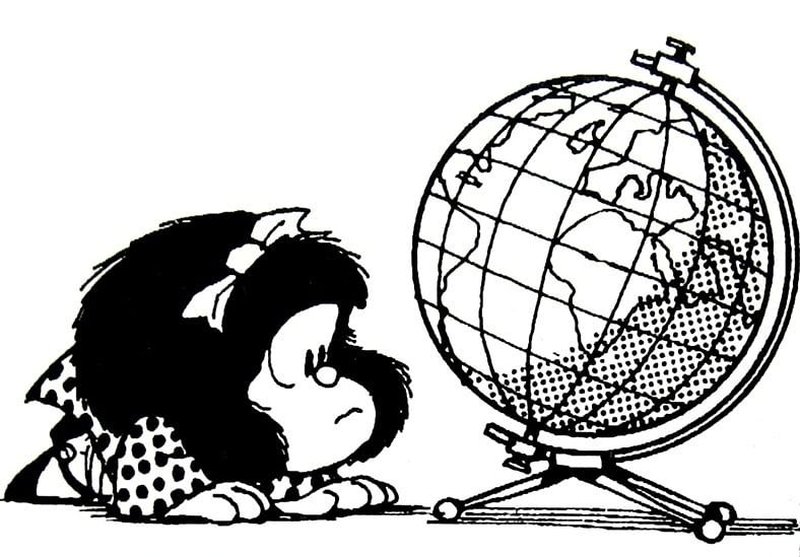In his lucid opuscule entitled Einführung in die Philosophie, which reached us, Hispanic readers, with the laconic name of «La filosofía», a secas, the German thinker and psychiatrist Karl Jaspers, argues that to do philosophy is to go on a journey. In that journey, it is demanded:
«[…] to dare a deepening of life, to expose oneself even to the greatest extremes without veiling them to oneself, to make honesty in seeing, questioning and answering prevail without restraint.»[1]

When the philosopher decides to set out on the road with honest eyes and authentic exigency, he cannot help but come across in the bends of his itinerary, with the various chiaroscuros of existence, with those realities that open abysses in his interior and that impel him to investigate. In-vestigate means to find traces, and that is how human nature moves. It moves, as Don Nimio de Anquín used to say among us, in the midst of a phantasmagoric discontinuity. The traveler goes groping, sniffing profiles, caressing the finiteness of things, experiencing their limitations and sensing the eternal. On this path he encounters pain and beauty, truth, freedom and evil, time and God, and he also undoubtedly encounters oblivion and death. On these two realities I would like to meditate briefly today. In some of my classes I usually tell my students that a death, with time, settles better in the soul than a forgetfulness. The sentence may seem exaggerated, but I think I have some reason to support it. Whoever leaves life without the help of his will, simply because it is an existential condition to be finite, whoever dies and leaves this world forever without the consent of his desire, leaves without wanting to leave and that death in his journey that leaves no direction. Man carries the desire for immortality and therefore, death is always a traumatic narrowing at the end of the road. That death, when we experience it in the carnal proximity of those we love, opens a trail of pain, darkens the days and makes us touch the nerve of the irremediable absence. Death is not saved by mere memory: «I want immortality in bulk and not the shadow of immortality» cried Unamuno, who pledged his life to this agonism. Death is not redeemed by mere memory, each one of us wishes, after death, to continue to exercise the ownership of our own conscience; each one of us aspires beyond the end, that the eyes we love may look again, that their hands may touch again, that their mouths may speak and kiss again. Immortality is a challenge, and I believe that death, both our own and that of those we love, can only be redeemed in a religious setting. Immortality demands to survive with its own name, a name given by a personal God. Immortality is personal or it is not. Death is not saved by mere memory, it is true; however, for those who remain here with a mortal garment, through the precarious aid granted by time, can at least neatly assume the absence from the arduous task of acceptance. Finitude is accepted, not without rebellion, by understanding this «kinship of dust», as Kierkegaard says. The Dane, who wrote profound pages on the memory of the dead, maintained that this disinterested love is one of the highest:
«Remembering implies fighting against time, that is, safeguarding its freedom against everything that leads to oblivion. And great is the power of time. Perhaps we do not perceive it on earth, because its cunning takes things from us little by little, perhaps we will perceive it only in eternity». And he finishes a few lines later: «So, if you want to be faithful in your love, watch your attitude with a dead man».
Oblivion, on the other hand, is the reverse of love. The one who leaves this life, as we have said above, leaves without the help of his will (we have omitted the sad and serious reality of suicide), while the one who decides to forget, who buries with the earth of his will the non-transferable individuality of the other, does it from himself, from his decision. He imposes an annihilation as a perfect crime and accepts to walk in parallel, without ever touching the one who was part of his life. Oblivion is the reverse of love, because to love someone, as Gabriel Marcel maintains, is to say to him «You will never die».
The fox’s encounter with the Little Prince is a lesson in love and individuality. The fox recognizes the footsteps of the Little Prince and it is that love that makes him come out of his den. That love that breaks the inner prison, recognizes the uniqueness of the other as unique and unrepeatable:
«I am no more to you than a fox similar to a hundred thousand other foxes. But if you tame me, we will need each other. You will be for me unique in the world. I will be for you the only one in the world.»[3] Love is allied to memory.
Love is an ally of memory, and so, in the face of separation, the fox returns to give us his pedagogy:
«The wheat fields don’t remind me of anything. And that’s sad! But you have golden hair. Then it will be wonderful when you have tamed me. The wheat, which is golden, will remind me of you. And I will be pleased with the sound of the wind in the wheat.»[4] «Tame», comes from the term «tame».
«Domesticate», comes from the Latin term domus, meaning «house». Love is to open the door of one’s own house and whoever passes through it leaves traces in it, silent footsteps that evoke presences with their own name. To forget is also to erase the house that gave shelter, that is why forgetting also has to do with ingratitude.
A death, I reaffirm it, although with bloody pain when facing it, ends up settling better in the conscience than forgetting, as one settles in the tabernacles of the soul the mother that we evoke at the moment of the event, the father in the gesture that gives us away, the friend in the laughing anecdote or the dog that, lying by our side, was our companion and confidant.
The forgetfulness of the other, on the other hand, is an open wound and sometimes a thorn, like the one Antonio Machado complained about, who, when he wanted to remove it from his heart, realized that his heart had split with the thorn. Forgetting is another kind of death, perhaps because at least in this life, as Paco Umbral said: «We are what we remember or what reminds us, we are not much more».
[1]Jaspers, K. La Filosofía. Fondo Cultura Económica. Buenos Aires, 1992: p. 103.
[2]Kierkegaard, S. The works of love. Ed. Leviathan. Buenos Aires, 2011: p. 232-233.
[3]Saint-Exupéry, A. The Little Prince, Ch. XXI.
[4]Ibid.





